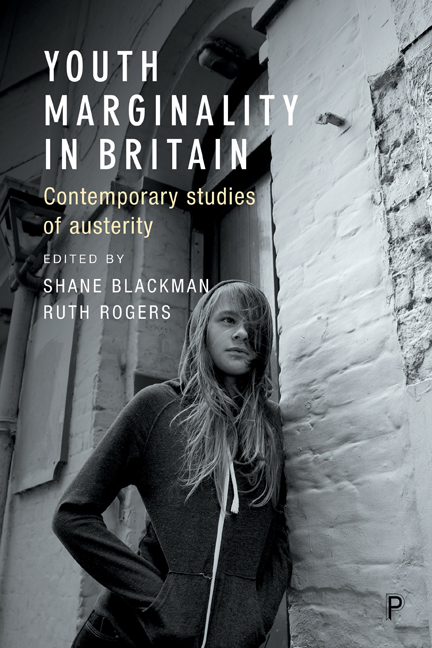thirteen - [B]othered Youth: marginalisation, stop and search and the policing of belonging
Published online by Cambridge University Press: 05 April 2022
Summary
Introduction
This chapter examines the contemporary issues surrounding the nature and impact of policing within disadvantaged communities in England and Wales. It seeks to critically explore how young people's encounters with the police can have a stigmatising and marginalising effect. The main focus for discussion is an exploration of the controversies surrounding the current policy and practice issues of ‘stop and search’ police powers (for example the Police and Criminal Evidence Act 1984 and section 60 of the Criminal Justice and Public Order Act 1994). It introduces the notion of [B]othering to explain how policing can be identified as the embodiment of respectability and acceptability, and offers some new insights into young people's lived experiences and their responses to encounters with the police.
The author offers some theoretical thoughts into the role of policing as a ‘spatial practice’ (Lefebvre, 1991), within what can be defined as ‘marginal spaces’ (Thompson et al, 2013) to illustrate how it is that certain young people, through stigmatisation and the process of ‘othering’, are marginalised and their use of space is regulated and controlled. Importantly, the concept of [B]othered Youth sees the dualistic notions of structure and agency as problematic, and draws upon Evans’ (2002) concept of ‘bounded agency’ to examine young people's attempts to make sense of, and to take control of, their lives.
The chapter offers a critical look at policing strategies, and questions the effectiveness of methods that are based on instrumental goals and legal interpretations of ‘stop and search’. It concludes by advocating for a policing role that incorporates a more nuanced understanding of youth and recognition of its pastoral and inclusive capabilities.
The meaning of [B]othered Youth
The author's initial concern is to look at the use of ‘stop and search’ powers to explore how such a policing practice can be considered as [B]othering – meaning a form of social practice which stigmatises disadvantaged young people and informs their sense of belonging, thereby contributing towards their marginalisation and wider social exclusion in Britain today. The term [B]othered Youth is coined here to encapsulate a range of key concepts and findings from contemporary research literature, which collectively describe the specific set of policing strategies and social conditions that, when applied to marginalised young people, help to explain their lived experiences.
- Type
- Chapter
- Information
- Youth Marginality in BritainContemporary Studies of Austerity, pp. 209 - 224Publisher: Bristol University PressPrint publication year: 2017



